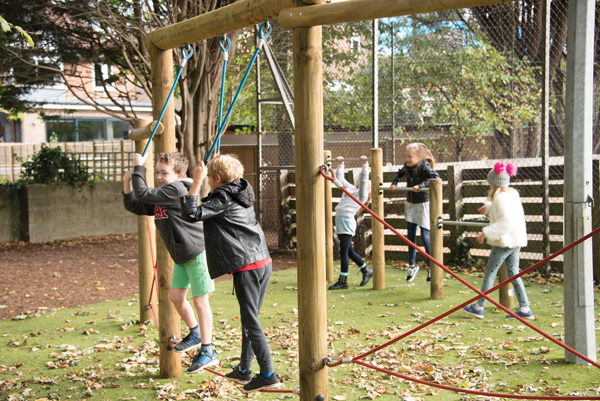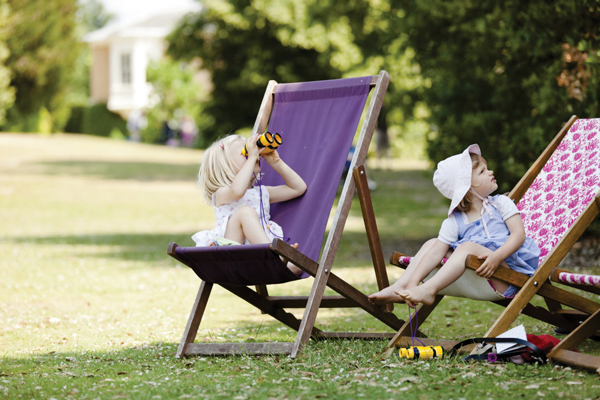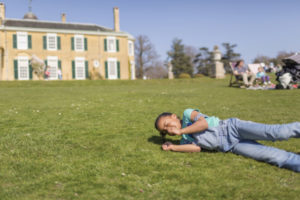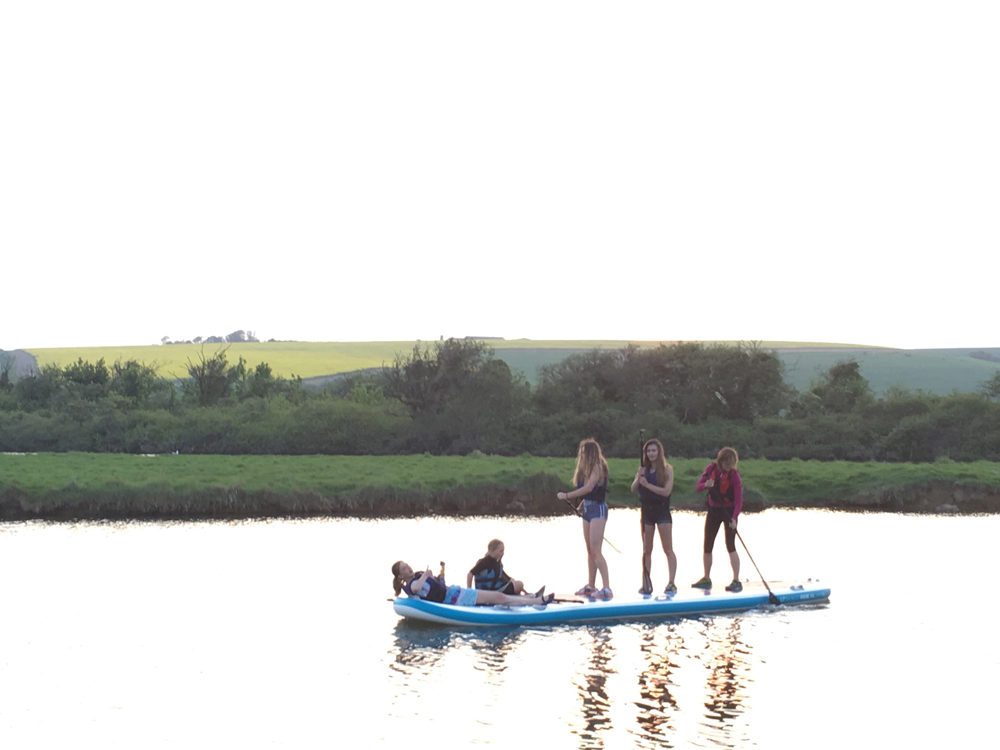
Spending time outdoors is the key to happier, healthier and more confident children. However, only one in five of them regularly play outside, says leading youth charity YHA (England and Wales).
The charity says that the opportunity to have adventures in the outdoors is vitally important to developing young people’s confidence, resilience and ambition for the future. Studies also show that just five minutes of ‘green exercise’ can improve a child’s mental wellbeing.
 To help more young people benefit from the transformational power of travel and adventure, YHA has launched a campaign – The Adventure Effect. It hopes the campaign will inspire young people and their families to get outdoors.
To help more young people benefit from the transformational power of travel and adventure, YHA has launched a campaign – The Adventure Effect. It hopes the campaign will inspire young people and their families to get outdoors.
Karen Pine, Professor of Developmental Psychology at the University of Hertfordshire, who has supported YHA with the development of The Adventure Effect, said: “If we want to raise children to be healthy physically, mentally, socially and emotionally, we must look at the experiences they’re having during childhood. Outside, spontaneous experiences in nature are critical to their development.”
She explained: “Being unable to get outside for a prolonged period can lead to stress and depression, which sadly besets many people
in our society today. Time outdoors spent having adventures in nature helps to build resilience – which is our ability to bounce back in life. This is an incredibly important skill.” Highlighting the impact of people not having the opportunity to access travel and the outdoors, YHA confined the professional adventurer and author Alastair Humphreys to a room for three days. In contrast, the film also follows five young people during their first trip to the Lake District and demonstrates their personal transformation during that time.
The thought-provoking social experiment has been documented in The Adventure Effect film. Watch the film and learn more about The Adventure Effect at www.yha.org.uk/adventureeffect
The film charts Alastair’s increasing frustration and unhappiness at having the opportunity for adventure removed from him. On day
two of the experiment he admits to ‘feeling low’.
Commenting on the social experiment, Alastair said: “I am delighted to support YHA’s Adventure Effect campaign. Being inside the room was a big learning experience for me. Three days seems like nothing but when the ability to go outside whenever you want, and the mental stimulation that goes with it, is taken away from you it is a huge shock. I was really surprised to discover I use my phone too much and use it to fill in any quieter times during the day. I also realised that I take my ability to have adventures – big and small, for granted.”
He added: “Adventure is as much about your attitude as anything else. Be curious and seize the opportunities that are available to you. YHA makes it easy, cheap and accessible for everyone to get their adventure started.”
As part of YHA’s Adventure Effect campaign, adventurer Alastair Humphreys has shared his five tips for people to get their adventure started:
1. Don’t just talk about it. Do it.
2. Do something simple and small, like going for a walk in your local woods or head up a hill.
3. Make sure you’re warm and prepared for bad weather with suitable waterproof clothing.
4. Take friends or family with you so you can share the experience and encourage each other.
5. Making the most of the outdoors shouldn’t be about pushing yourself and feeling miserable. Go at your own pace and have fun.

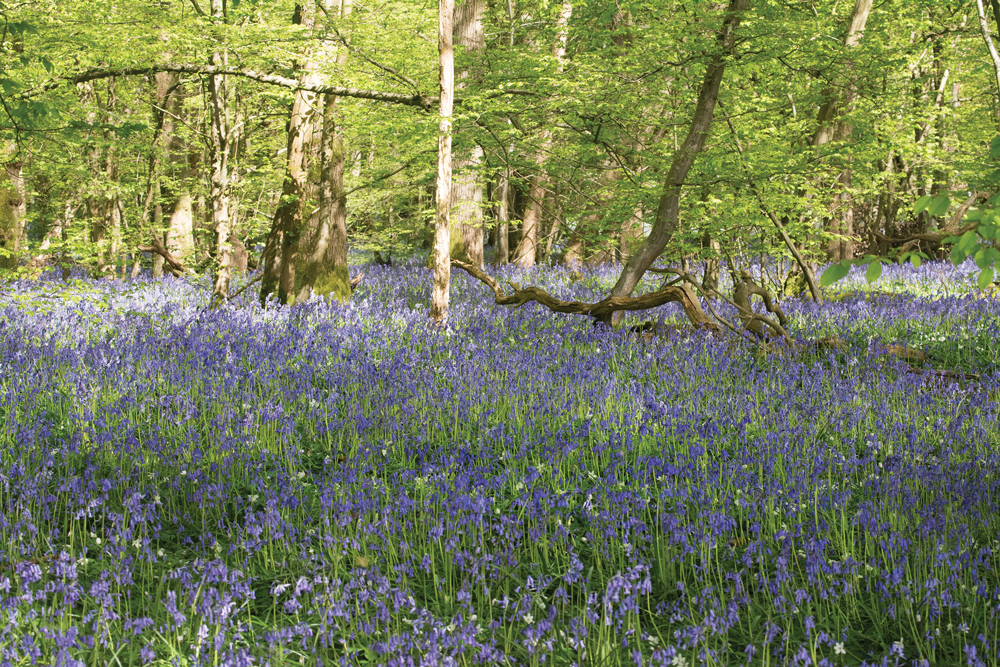
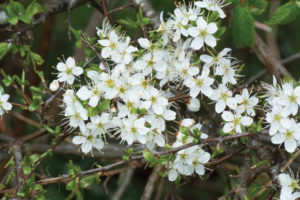 Sussex and Surrey have an abundance of woodlands – here the flowers appear early in the year when the ground has warmed up and it is light. Once the leaves on the trees have come out, the woods become too shady for most flowers to grow. Plants that take full advantage of the brighter spring conditions include wood anemones, bluebells, primroses, common dog-violets and lesser celandines. Of all these, perhaps the bluebell puts on the most impressive display, for few wild flowers cover the ground so completely or smell as sweet. Chinthurst Hill near Wonersh, Brede Hill near Battle, Heaven Farm near Uckfield and Angmering Woods near Arundel, all put on annual bluebell spectaculars along with a medley of other spring flowers.
Sussex and Surrey have an abundance of woodlands – here the flowers appear early in the year when the ground has warmed up and it is light. Once the leaves on the trees have come out, the woods become too shady for most flowers to grow. Plants that take full advantage of the brighter spring conditions include wood anemones, bluebells, primroses, common dog-violets and lesser celandines. Of all these, perhaps the bluebell puts on the most impressive display, for few wild flowers cover the ground so completely or smell as sweet. Chinthurst Hill near Wonersh, Brede Hill near Battle, Heaven Farm near Uckfield and Angmering Woods near Arundel, all put on annual bluebell spectaculars along with a medley of other spring flowers.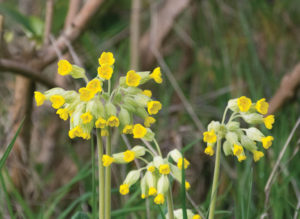 a captivating appeal for many people and to discover one is thrilling. Ditchling Beacon and Malling Down are excellent places to search for them. Look out now for the early purple orchid – its clusters of flowers, long spotted leaves and unpleasant smell help to identify it – and come back in the summer for more orchid spotting.
a captivating appeal for many people and to discover one is thrilling. Ditchling Beacon and Malling Down are excellent places to search for them. Look out now for the early purple orchid – its clusters of flowers, long spotted leaves and unpleasant smell help to identify it – and come back in the summer for more orchid spotting.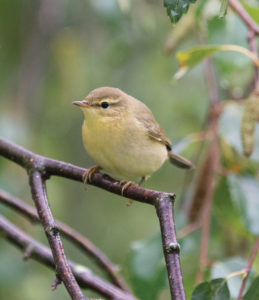 There is no better season for listening to bird song and often the adventures begin by simply opening a window! Every habitat has its own star performers with some having flown vast distances to be with us. If you want to hear some outstanding virtuosos then head to heathlands such as Chobham, Pirbright, and Iping and Stedham Commons. Here you may hear (if not see) buzzy Dartford warblers, melodious willow warblers or perhaps a chirring nightjar or two. Even more discrete than these birds are the nightingale – its drab, brown colouring making it almost impossible to spot in the dense undergrowth it inhabits. Its song, though, is unmistakable and the male sings both day and night until it finds a mate. Make your way to Ebenhoe Common, Pulborough Brooks and Puttenham Common for an unforgettable auditory experience. Make a note of International Dawn Chorus Day which is on Sunday 2nd May this year. Events are usually planned by a range of local wildlife groups.
There is no better season for listening to bird song and often the adventures begin by simply opening a window! Every habitat has its own star performers with some having flown vast distances to be with us. If you want to hear some outstanding virtuosos then head to heathlands such as Chobham, Pirbright, and Iping and Stedham Commons. Here you may hear (if not see) buzzy Dartford warblers, melodious willow warblers or perhaps a chirring nightjar or two. Even more discrete than these birds are the nightingale – its drab, brown colouring making it almost impossible to spot in the dense undergrowth it inhabits. Its song, though, is unmistakable and the male sings both day and night until it finds a mate. Make your way to Ebenhoe Common, Pulborough Brooks and Puttenham Common for an unforgettable auditory experience. Make a note of International Dawn Chorus Day which is on Sunday 2nd May this year. Events are usually planned by a range of local wildlife groups.


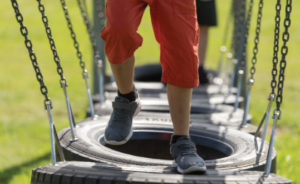 eep active and keep healthy
eep active and keep healthy

